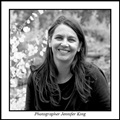Photo Workshop Review
|
Date:
|
April 25-27, 2014
|
|
Workshop Leader:
|
Jennifer King
|
|
MCC Attendee:
|
Rick Barnard
|
|
Workshop Fee:
|
$595, which included field sessions, classroom sessions, processing tech and critiques. Does not include accommodations or meals.
|
|
Location:
|
Great Smoky Mountains National Park
|
|
Emphasis:
|
Landscape/Nature
|
|
Web Site:
|
http://www.jenniferkingphoto.com
|
Comments by Rick Barnard
I’ve been on a couple of dozen photo workshops since I began shooting intensively in 2006. Some were terrific educational experiences that enabled me to learn a lot. Over time, I’ve taken my photography to higher levels thanks to workshop leaders who were great photographers and wonderful teachers. Other photo workshops were a waste of my time and money.
Jennifer King’s April workshop in the Smokies was one of the very best in my experience.
Regardless of the emphasis or locale, there are elements of success common to every productive photo workshop.
I did my homework. I’ve learned the hard way that investing a little time and effort up front pays off when I’m in the field. I had checked Jennifer out. A photographer I follow had high praise for her professionalism. I attended Jennifer’s January 2014 workshop in Death Valley and got a lot out of it.
Also, the Smokies photographs on Jennifer’s website: www.jenniferkingphoto.com pretty much jived with what I wanted to achieve. Common sense, right? Yes, but a few years ago I returned from a successful landscape workshop in Utah and quickly signed up for another workshop in Chincoteague. Big mistake. Chincoteague was all about birds. Back then, I didn’t particularly like shooting birds and didn’t have the equipment for it. It was pretty much a waste of three days and several hundred dollars.
Choosing a workshop (and workshop leader) is no different than hiring a lawyer or finding a good therapist. Due diligence is essential.
Jennifer did a lot of scouting. She was in the Smokies three days before the workshop began and checked out every site we would visit. It paid off. For example, she found a beautiful little stream with dogwood blossoms dangling just above the water. Great Smoky Mountains National Park  usually is jammed with people but there were few others at this particular site. One of my shots there turned out nicely. Extensive scouting is vital to the success of a photo workshop. In my experience, however, six out of ten workshop leaders don’t scout. They rely on their visits to sites in previous years. That often leads to unpleasant surprises. In 2010, a workshop leader led me and six others to a special site high in the Rockies to shoot wildflowers with mountain peaks in the background. But there was a problem: No flowers. The morning was pretty much blown.
usually is jammed with people but there were few others at this particular site. One of my shots there turned out nicely. Extensive scouting is vital to the success of a photo workshop. In my experience, however, six out of ten workshop leaders don’t scout. They rely on their visits to sites in previous years. That often leads to unpleasant surprises. In 2010, a workshop leader led me and six others to a special site high in the Rockies to shoot wildflowers with mountain peaks in the background. But there was a problem: No flowers. The morning was pretty much blown.
Jennifer keeps her student-instructor ratio very low. She had nine students and two assistant instructors. The 3-to-1 ratio meant we never lacked for assistance or waited for an instructor to check out a composition. Also, Jennifer rarely takes her cameras into the field. This is in contrast to the surprising number of workshop leaders who spend as much time on their own photography as they do teaching the people that pay their fees.
Jennifer spent lots of time looking into my viewfinder. She made dozens of suggestions about key elements of photography such as balancing a composition, positioning the horizon and creating depth. In recent months, I had relied on composite images to handle highlights and shadows. Jennifer convinced me to take my neutral density filters out of my backup bag and into the field. And she taught me a different way to use them. I had better control of the light and the tonal range in my Smokies shots was the best I have achieved in many a moon.
Some workshop leaders hang back waiting for me to ask questions. Jennifer doesn’t wait. She’s assertive.
Jennifer pushed me to do better. She did not hesitate to pick up my tripod and move it to a better position. She suggested different compositions, different lenses, new ways to portray mountains and rivers. Jennifer stayed positive and constructive. But she was often a voice in my ear urging me to make a good image better.
There are things Jennifer could do to improve the experience of her clients: Prepare a written outline of her Lightroom workflow for her mid-day class on post processing; schedule a noon break each day; and hand out a list of attendees at the “meet and greet” that kicks off each workshop, making it easier for everyone to match names with faces.
Jennifer King Workshops are not for everyone. If you want a photo workshop that is a kinda-sorta vacation, look elsewhere. But you would benefit greatly from her workshops if you want to be challenged, learn new ways to “see” a composition, and improve as an artist,
In recent years, I have encountered many workshop leaders. Jennifer King is one of the very few I recommend.